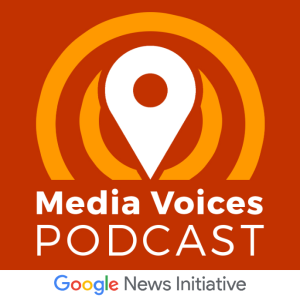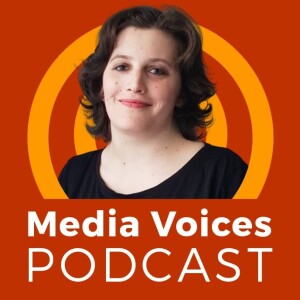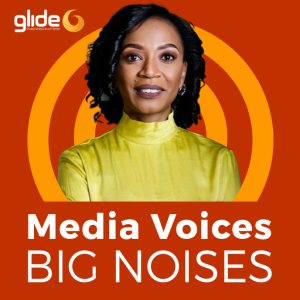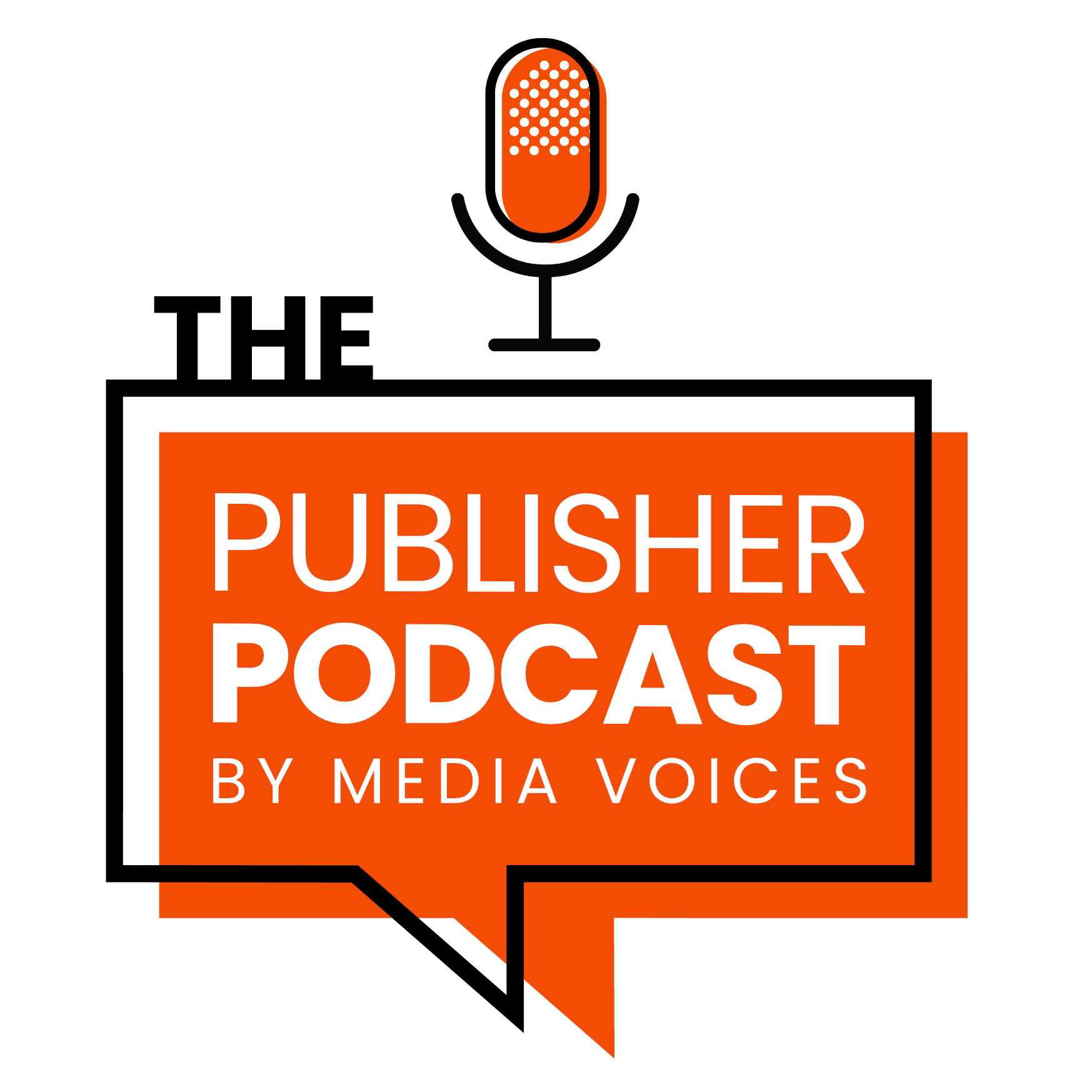Episodes

Wednesday Jan 24, 2024
Futureproofing local news: State of the market
Wednesday Jan 24, 2024
Wednesday Jan 24, 2024
As part of a special four-part podcast series, supported by the Google News Initiative, we’ve been talking to publishers and experts across Europe who are working to find resilient business models. We spoke to them about the state of the local news market in their regions, how they’ve evolved company culture and practice, and what tools and trends they’re working with to prepare for the next decade.
In this first episode, we look at some of the historical context around the state of local news, shifts in the UK and European markets, and what ‘good’ local news might look like. We also do a deep dive into some of the issues facing the UK local news market, as well as the continuing value of local news to communities.
Experts featured in this episode:
- Doug Smith – Lead architect, Table Stakes
- Pierre France, Co-Founder, Rue89 Strasbourg
- Craig Walker, Editor, Press and Journal and Evening Express, DC Thomson
- Jonathan Heawood, Executive Director, Public Interest News Foundation
- David Floyd, Managing Director, Social Spider
- Prof. Dr. Wiebke Möhring, Professor of Journalism, TU Dortmund Institute for Journalism
- Benedicte Autret, Head of News Partnerships, UK/IE/Northern Europe, Google
This series is supported by the Google News Initiative. They work with publishers and journalists to fight misinformation, share resources, and build a diverse and innovative local news system. Find out more about their programmes, tools and resources at newsinitiative.withgoogle.com
Monday Jan 08, 2024
Integrating AI into newsrooms: experiment, report, measure
Monday Jan 08, 2024
Monday Jan 08, 2024
In the second episode of this two-part series from Mx3 AI, a new pop-up conference we collaborated on with Media Makers Meet, we look at why, how and when publishers are integrating AI into their newsrooms.
AI is not a pie-in-the-sky dream for media companies: it hasn’t been for years. For close to a decade questions about whether AI will replace or empower journalists have been raised at conferences and in newsrooms.
Over the past few years the conversation has changed. It is now no longer a question of ‘if’ AI will be integrated throughout the newsroom, but ‘when’.
In December, Media Voices collaborated with Media Makers Meet on their Mx3 AI conference in London. The speakers – drawn from across the media industry from recruitment to newsroom – confirmed that AI is already suffusing the industry. But where they offered invaluable insight was around ensuring it is used effectively and with consideration for the business goals and employees of publishers.
As the official report from the event notes: “A key theme throughout… was the need for publishers to act immediately and start experimenting with AI, albeit with clear business goals at front of mind.”
This episode is the second of a two-part series from Mx3 AI. The first, looking at opportunities, regulation and risks around AI, can be found below this episode in the feed. There is also a corresponding report from the event, written by Media Makers Meet, available to download here.
Media Voices and Media Makers Meet would like to thank FT Strategies, InsurAds, Labrador CMS, Miso, Sub(x) and Zuora for sponsoring the conference.
Monday Dec 18, 2023
AI in the newsroom: Opportunities, regulation and risk
Monday Dec 18, 2023
Monday Dec 18, 2023
In this last episode of Media Voices in 2023 we take a big picture look at AI, based off our recent collaboration with Media Makers Meet on their Mx3 AI conference. We hear from experts from Immediate Media, Ipsos, the News Media Association and more, about where they are placing their chips to take advantage of the fastest-moving area of media.
This holistic look at AI in the newsroom has been split into two parts. In this first part we set the scene for AI and its use in publishing, as experts tell us how to prepare for internal and external changes to media businesses. The second part - coming in the new year - is comprised of case studies from publishers already getting their hands dirty with AI tech.
Media Voices and Media Makers Meet would like to thank FT Strategies, InsurAds, Labrador CMS, Miso, Sub(x) and Zuora for sponsoring the conference.
Monday Dec 11, 2023
Project 23’s Elaine dela Cruz on creating DE&I programmes in media
Monday Dec 11, 2023
Monday Dec 11, 2023
On this week's episode of the podcast Elaine dela Cruz, co-founder of DE&I consultancy firm Project 23, tells us about what is creating positive change for diversity and inclusion in the industry. We're also joined by guest co-host Joanna Cummings, Editorial Director of The Grub Street Journal and author of the DE&I chapter of this year's Media Moments report.
Elaine takes us through why she co-founded the organisation, how the DE&I landscape has changed over the past five years, and why 'resilience' is such a dangerous word. We also discuss how the best media companies are measuring the success of their DE&I efforts.
A round-up of publishers' DE&I initiatives and developments will be part of our upcoming Media Moments 2023 report. Find out more and pre-register for the report here.

Tuesday Dec 05, 2023
The Addition’s Charlotte Henry on changing TV consumption habits
Tuesday Dec 05, 2023
Tuesday Dec 05, 2023
On this week’s podcast (which is also this week’s edition of The Addition) we hear from author, journalist and broadcaster Charlotte Henry. She creates and runs The Addition newsletter and podcast; an award-winning publication looking at the crossover between media and technology.
Charlotte has written the Broadcast chapter of our upcoming Media Moments 2023 report, so it was only right and proper that we got her on to discuss all the broadcast trends of the past year. It’s been a big old year for TV — both good and bad — so it was great to get an expert in to chat it all over.
We discuss the role of exclusive content, the doldrums of advertising sales across linear broadcasts, the need to differentiate a streaming service from its competitors, and the longer term impact of the Hollywood actors' strike. We also explore how streaming platforms like Disney+ and Netflix are faring a year after introducing ad-supported tiers.
Monday Nov 27, 2023
Reuters Institute’s Dr Amy Ross Arguedas on studying trust
Monday Nov 27, 2023
Monday Nov 27, 2023
This week, to help us dissect the year in trust, we're joined by Dr Amy Ross Arguedas, a Postdoctoral Researcher Fellow at the Reuters Institute for the Study of Journalism. Between 2020 and September 2023, she worked on the Trust in News Project, and she’s currently a part of the team working on the Reuters Institute's annual Digital News Report.
Amy tells us about the work of the Trust in News Project, and how to go about measuring trust in a way which is useful. She explains how trust is affected by political divisions and whether the impact of publisher mistakes is long-lasting, as well as the opportunities for more traditional sources to engage younger people.
We also explore the potential impacts of AI on trust; how transparent should publishers be with their use of it, as well as the risks and opportunities AI presents for the fight against misinformation.
Trust, disinformation and how publishers have responded this year will be one of the chapters we explore as part of our upcoming Media Moments 2023 report. Find out more and pre-register for the report here.
Tuesday Nov 21, 2023
Newsrewired special with Journalism.co.uk: leadership, AI and business models
Tuesday Nov 21, 2023
Tuesday Nov 21, 2023
What’s top of mind for today’s news leaders? Evolving at pace, finding your USP - but not burning out in the process.
Last week, we were at the Newsrewired conference in London for a day of panels and workshops about the future of digital publishing. In a world of increasing possibilities and pressures, the central question of the day was this: how can we be selective and effective at innovating?
How do you get readers to pay for news? Will AI take our jobs? Where are the new business model opportunities? These questions and more were pored over.
In this special collaborative episode with our friends at Journalism.co.uk, we take a look at the key themes across the day, plus some backstage interviews with; independent media consultant Isabelle Roughol, media strategy expert Lucy Kueng, The News Movement managing editor Jonathan Paterson, post-doctoral researcher Dr Bartosz Wilczek and Explainable director Kevin Donnellan.
Thanks to Jacob Granger and Marcela Kunova at Journalism.co.uk for inviting us to be a part of Newsrewired. Check out the Journalism.co.uk podcast on Apple Podcasts, Soundcloud and Spotify
Monday Nov 13, 2023
WalesOnline’s Jillian MacMath on transforming a portfolio of newsletters
Monday Nov 13, 2023
Monday Nov 13, 2023
This week we hear from Jillian MacMath, Audience Editor at WalesOnline. She was chosen by the judges as the winner of the first ever Hero of the Year at the Publisher Newsletter Awards, so what better person to come and discuss everything newsletters with us.
Jillian talks about the opportunities she saw to get more strategic about the newsletter portfolio when she joined WalesOnline, what metrics should matter to anyone with a newsletter, and what dedicated newsletters like football and food look like with a local focus. She also tells the story of their pop-up Covid newsletter, explains how to get other members of the newsroom invested in newsletters, and how they're using key names to build more personal relationships via the inbox.
Newsletters and publishers innovating in the inbox this year will be one of the chapters we explore as part of our upcoming Media Moments 2023 report. Find out more and pre-register for the report here.
Wednesday Nov 08, 2023
Media Briefs: Yes, you can use Apple News to build first-party data
Wednesday Nov 08, 2023
Wednesday Nov 08, 2023
No, Apple doesn’t share customer data directly. But there are some clear pathways for publishers to leverage and drive first-party data capture in the app.
In a change from our regular weekly shows and our Conversations panel discussions, this is a short, sharp sponsored episode – just 10 minutes – with a senior executive from a vendor working with publishers to make their businesses better.
This episode Peter speaks with with Kieran Delaney, CEO at Apple News specialists FlatPlan, about how publishers can make the most of the platform. Despite its rigid policies on sharing consumer data, there are ways publishers can funnel readers to their own properties to capture data there. Kieran also explains why Apple News is worth investing time into compared to social media, and how to get started.
This Media Briefs episode is sponsored by FlatPlan. More than 145 million people read 5 billion articles on Apple News every month and FlatPlan empowers publishers to reach this huge audience in beautifully branded publications, on optimised articles built to maximise growth on the platform.
With clients ranging from Bauer Media to ITV, FlatPlan handles all the heavy lifting including delivery, reporting and optimisation. Reduce months of development work to a no-code solution that works with any CMS and maximize the effectiveness of your content with tools built to scale audience growth quickly.
Learn more about FlatPlan on their website, or book a demo.

Monday Nov 06, 2023
Motor Sport Magazine’s Zamir Walimohamed on making subscriptions work
Monday Nov 06, 2023
Monday Nov 06, 2023
On this week’s episode of the podcast we take a deep dive into the subscription trends of the past year. To get insight from someone who’s had experience in subscription management, we spoke to Zamir Walimohamed, Head of Digital, Marketing & Subscriptions at Motor Sport Magazine. Zamir has been playing a pivotal role in driving Motor Sport Magazine's digital expansion and marketing initiatives for 12 years now, during which time he’s seen trends come, go, and stay.
Zamir tells us about how the magazine has managed bringing print subscribers into its digital ecosystem, and why a growing propensity to pay for digital subscriptions is benefitting magazines across the industry. He also discusses the extent to which off-the-shelf subscription management tools are fit for purpose, and where the smart money is being spent on improving retention. Peter and Chris get very excited about Scalextric.
Monday Oct 30, 2023
LADbible Group’s Jake Strong-Jones on the best use of social platforms
Monday Oct 30, 2023
Monday Oct 30, 2023
In this week's episode we hear from LADbible Group's Operations Lead Jake Strong-Jones on how the group's verticals make best use of social platforms. He works with teams across the business on new launches, distribution strategy and operations, as well as the content strategy and insights on LADbible Group's social platforms.
He takes us through everything from how they go about making discerning use of platforms to find new audiences, how its use of TikTok allows it to reach two-thirds of adults in the UK, and what trends the group is keeping an eye on over the next 12 months.
How publishers have approached social media platforms over the past year will be one of the chapters we explore as part of our upcoming Media Moments 2023 report. Find out more and pre-register for the report here.
Monday Oct 23, 2023
MyLocal’s Daniel Ionescu on platforms for sustainable local news
Monday Oct 23, 2023
Monday Oct 23, 2023
This week we're joined by Daniel Ionescu, founder of The Lincolnite, an independent local news publisher in Lincolnshire. He is also the founder and editor of new local news platform MyLocal, which is setting out to create a sustainable ecosystem where local journalism, communities and businesses can thrive.
Daniel talks us through why he got into local news in 2010 and the opportunity he spotted to make local news much more up-to-date when compared to the digital efforts of local news organisations still tied to the print cycle. He explains how MyLocal came about, and how they anticipated some of the problems publishers are facing today with the decline in social media traffic and challenges around sustainable revenue streams.
We also discuss the importance of building human, direct relationships to build trust in local news titles, whether collaboration between large and small outlets is realistic, and if local news can ever truly be sustainable.
The past 12 months in local news developments will be one of the chapters we explore as part of our upcoming Media Moments 2023 report. Find out more and pre-register for the report here.
Monday Oct 16, 2023
The New Statesman’s Chris Stone on podcast and platform experiments
Monday Oct 16, 2023
Monday Oct 16, 2023
This week we're joined by Chris Stone, Executive Producer at the New Statesman. Chris is in charge of the podcast and video strategy at the publication, and his experimental approach has seen monthly podcast downloads double, video views reach 8 million a month, and huge growth on their YouTube channel. More recently, he has been leaning into video podcasts on YouTube, figuring out what works for the New Statesman as the platform doubles down on its support for podcasts.
Chris takes us through some of his boldest experiments with podcasts at the New Statesman, from consolidating them into one feed to publishing audio and video versions to YouTube. He also talks about how they're adapting to wider trends in the podcasting market, the potential use cases for AI in podcasts, and whether others will follow in the footsteps of The Economist and move all their podcasts behind a paywall. As economic conditions continue to put publishers under pressure, he gives some advice to publisher podcast teams facing budget cuts.
2023's podcasting trends and their relevance to publishers will be one of the chapters we explore as part of our upcoming Media Moments 2023 report. Find out more and pre-register for the report here.

Monday Oct 09, 2023
Monday Oct 09, 2023
This week we’re joined by Jacqui Merrington, who has her own Substack The Happy Journalist focused on showcasing how new tech can be used positively in journalism. Most recently she led one of the first generative AI experiments at Reach as well as devising and leading a project aimed at developing new business models for their smallest local sites using AI, interactive content formats and newsletters.
Jacqui takes us through the reasons she's optimistic about journalists using AI, how newsrooms can go about implementing it sustainably, and what best (and worst) practice looks like in 2023.
And remember - we don't have a catchphrase.
AI and how publishers have experimented with new generative tools will be one of the chapters we explore as part of our upcoming Media Moments 2023 report. Find out more and pre-register for the report here.
Monday Oct 02, 2023
Monday Oct 02, 2023
On this first episode of the last season for 2023, we feature a passion project from one of our own. The Grub Street Journal is a B2B title made by and for people who love print magazines. Its co-founders and editors Joanna Cummings and Peter Houston take us through the project from inception to monetisation, and give us a sneak peek at the third issue of the magazine.
The team also discuss whether a flurry of print magazine stories is a sign of a wider resurgence, or a blip. With NME coming back into print, Elle Australia hitting newsstands again next year following rising demand, and Immediate's Radio Times reaching 100 years and still going strong, what does a print resurgence look like? If print is making a comeback, it's looking more niche, less frequent, and more expensive to make or buy.
Print and its place in publisher portfolios this year will be one of the chapters we explore as part of our upcoming Media Moments 2023 report. Find out more and pre-register for the report here.

Monday Jul 31, 2023
Big Noises: Stuart Forrest on clickability vs clickbait
Monday Jul 31, 2023
Monday Jul 31, 2023
Welcome to the latest season of Media Voices: Big Noises! This season, sponsored by Glide Publishing Platform, we’ll be talking to publishing people with something to say. Media Voices co-host Peter Houston is tired of hearing the same old industry buzzwords. The publishing platitudes are starting to wear a bit thin, and he’s decided to see if he can shake the conversation up a bit by speaking to some of the biggest characters in the business.
On this week's episode of Media Voices - the final edition of our Big Noises series - we hear from Stuart Forrest. As Peter makes clear in his intro, Stuart has worked at most of the major publishers in the UK in a variety of different roles, which has granted him a unique insight into the good and bad practices of the industry.
He tells us about all the changes he's seen over his career to date, why the publisher-platform tug-of-war is inevitable but subject to change, and how 'clickability' differs from 'clickbait'.
We'll be back later in the year with our autumn season of Media Voices. Until then, have a fantastic summer!
Thanks to Glide Publishing Platform who have sponsored this season of Media Voices: Big Noises. Glide exists to make publishers more successful by removing any need to get bogged down building Content Management Systems, providing an industry-leading SaaS tailored to let publishers do more and spend less. Publishers using Glide direct more resources at their audiences and products, and focus on building things that make them money. You do the content, Glide does the management.
Glide have created 3 expert guides to getting much more from a new or headless CMS, created for editorial, technology, and product teams. You can get the whitepapers here.

Monday Jul 24, 2023
Big Noises: Rafat Ali on choosing the slow path to growth
Monday Jul 24, 2023
Monday Jul 24, 2023
Welcome to the latest season of Media Voices: Big Noises! This season, sponsored by Glide Publishing Platform, we’ll be talking to publishing people with something to say. Media Voices co-host Peter Houston is tired of hearing the same old industry buzzwords. The publishing platitudes are starting to wear a bit thin, and he’s decided to see if he can shake the conversation up a bit by speaking to some of the biggest characters in the business.
On this week’s episode of Big Noises we hear from Skift founder Rafat Ali. He tells us about why he decided on eschewing the rush for VC funding in favour of more sustainable growth, how the travel information site is using AI in a practical way, and where so much of the media industry goes wrong when choosing priorities.
He tells us about his lateral moves from tech expert to paid content specialist into founder of a premium B2B travel site.
Thanks to Glide Publishing Platform who have sponsored this season of Media Voices: Big Noises. Glide exists to make publishers more successful by removing any need to get bogged down building Content Management Systems, providing an industry-leading SaaS tailored to let publishers do more and spend less. Publishers using Glide direct more resources at their audiences and products, and focus on building things that make them money. You do the content, Glide does the management.
Glide have created 3 expert guides to getting much more from a new or headless CMS, created for editorial, technology, and product teams. You can get the whitepapers here.

Monday Jul 17, 2023
Big Noises: Ricky Sutton on publisher valuations, AI, and platform frenemies
Monday Jul 17, 2023
Monday Jul 17, 2023
Welcome to the latest season of Media Voices: Big Noises! This season, sponsored by Glide Publishing Platform, we’ll be talking to publishing people with something to say. Media Voices co-host Peter Houston is tired of hearing the same old industry buzzwords. The publishing platitudes are starting to wear a bit thin, and he’s decided to see if he can shake the conversation up a bit by speaking to some of the biggest characters in the business.
On this week's episode of Media Voices' Big Noises series we hear from Ricky Sutton, a man who has straddled both the journalistic and tech industries.
Ricky tells us about the media militancy, why we need media plurality and why he thinks publisher cohesion is vital for ensuring that, and his own eclectic and unusual path through the industry. He explains why the AI could be fatal for the publishing industry - and what we need to do to prevent that inevitability.
Thanks to Glide Publishing Platform who have sponsored this season of Media Voices: Big Noises. Glide exists to make publishers more successful by removing any need to get bogged down building Content Management Systems, providing an industry-leading SaaS tailored to let publishers do more and spend less. Publishers using Glide direct more resources at their audiences and products, and focus on building things that make them money. You do the content, Glide does the management.
Glide have created 3 expert guides to getting much more from a new or headless CMS, created for editorial, technology, and product teams. You can get the whitepapers here.

Monday Jul 10, 2023
Big Noises: Mpho Raborife on keeping Gen Z engaged
Monday Jul 10, 2023
Monday Jul 10, 2023
Welcome to the latest season of Media Voices: Big Noises! This season, sponsored by Glide Publishing Platform, we’ll be talking to publishing people with something to say. Media Voices co-host Peter Houston is tired of hearing the same old industry buzzwords. The publishing platitudes are starting to wear a bit thin, and he’s decided to see if he can shake the conversation up a bit by speaking to some of the biggest characters in the business.
On this week's episode of Big Noises we hear from Mpho Raborife. Mpho is Managing Editor at news24, a South African-based news outlet with a primarily Millennial staff and audience.
Mpho tells us about how she caught the journalism bug while doing work experience, why news organisations that don't listen to their younger staff members aren't effectively serving their audiences, and why young people in newsrooms need to know they have a future in the business to remain invested and engaged.
Peter also asked her about her ongoing research project for the Reuters Institute for the Study of Journalism, and how she hopes younger people will be more nurtured by newsrooms in the future. She echoes what Lucy Keung has said about the need to listen to the younger members of staff - and how those who don't are leaving societal and commercial opportunities on the table.
 Thanks to Glide Publishing Platform who have sponsored this season of Media Voices: Big Noises. Glide exists to make publishers more successful by removing any need to get bogged down building Content Management Systems, providing an industry-leading SaaS tailored to let publishers do more and spend less. Publishers using Glide direct more resources at their audiences and products, and focus on building things that make them money. You do the content, Glide does the management.
Thanks to Glide Publishing Platform who have sponsored this season of Media Voices: Big Noises. Glide exists to make publishers more successful by removing any need to get bogged down building Content Management Systems, providing an industry-leading SaaS tailored to let publishers do more and spend less. Publishers using Glide direct more resources at their audiences and products, and focus on building things that make them money. You do the content, Glide does the management.
Glide have created 3 expert guides to getting much more from a new or headless CMS, created for editorial, technology, and product teams. You can get the whitepapers here.

Monday Jul 03, 2023
Big Noises: Michelle Manafy on the media’s universal problems
Monday Jul 03, 2023
Monday Jul 03, 2023
On this week’s episode of Big Noises from Media Voices we hear from Michelle Manafy, Editorial Director at Digital Content Next (DCN), the trade organisation for premium publishers.
Michelle started out as a journalist. The rise of digital media saw her embrace the changes and after working for a range of publications, from alt weeklies to B2B titles, she joined what was then the AOP to help premium publishers on their digital transition. She now manages online content and events for the group. More than a decade in, Michelle still has hope for the media, but is frustrated by many of the publishing practices she sees. “Now we’re in a world where two thirds of our job is to rise above the noise. ‘Listen to me. Look at me’ right? Are we providing a value exchange? When people give us that gift of their attention, do we provide them with value… was it worth their time?"

